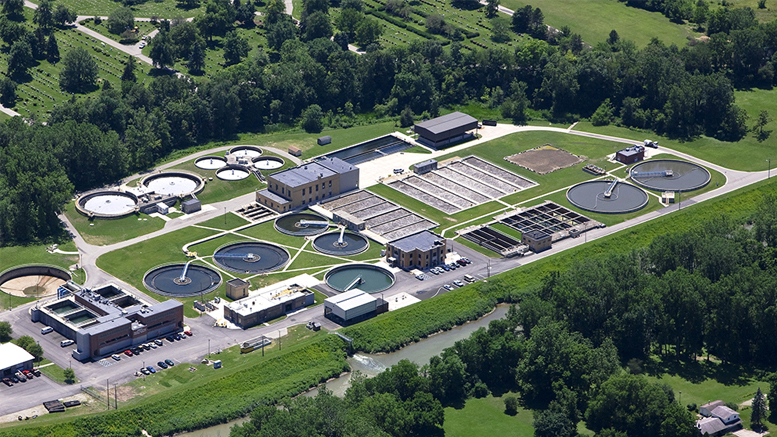By Rick Conrad—
Muncie, IN—The Muncie Sanitary District’s Bureau of Water Quality (BWQ) recently began participating in a project designed to help aid the community’s response to Covid-19. Sampling for the presence of coronavirus in wastewaters has emerged as a powerful tool for the early detection of outbreaks. One of the greatest challenges in controlling the spread of this virus has been the lag time between when an infected person becomes contagious versus when they become aware they are infected.
With a 10 to 14-day pre-symptomatic period (and sometimes entirely asymptomatic course) it may be two weeks before an infected person has any reason to seek a test for themselves. In the meantime, they may have exposed many others to the virus. In contrast, an infected person will begin to shed the virus in their stool at about the same time they become contagious to others, regardless of whether or not they are showing symptoms. Therefore, testing for the virus in wastewater can allow for a much quicker identification and response.
In addition to increasing the reaction time for outbreaks, this type of pooled testing can also help guide the more effective use of individual tests, which are relatively expensive and logistically complicated to administer.
Pooled testing is also the least bias of all the available tests, making it useful for monitoring long-term trends in transmission and spread. This information could be helpful to guide and evaluate larger-scale responses by the state and the federal government.
The project is being funded by the Indiana Finance Authority and is managed and coordinated by 120Water out of Zionsville, IN. Their goal was to locate cities in Indiana that serve universities with on-campus housing.
Because dormitories and residence halls host students from other cities, states, and countries, they are uniquely susceptible to becoming sources of coronavirus outbreaks. The program managers will also be working with cities like Bloomington, West Lafayette, Valparaiso, and a handful of others across the state.
The Bureau of Water Quality’s role in the program will be to collect samples from two general locations. The first is at the primary influent at the Muncie Water Pollution Control Facility. Generally speaking, this location will represent the entire City of Muncie. The second location will be focused on the wastewater from residence halls at Ball State. Samples will be collected from both locations three times per week for ten weeks. They will be sent to a commercial laboratory that specializes in the techniques required to detect and quantify the presence of the genetic material from Covid-19.
The results will be reviewed by Doctors of Infectious Disease and Epidemiology at the University of Notre Dame. Results from the initial weeks of testing will be used as a baseline against which they will look for potential peaks in later samples. They will prepare a report and possible guidance recommendations, which will be shared with local health officials and Ball State University as an additional tool to consider when planning their Covid response activities.
The costs for all of the testing and analysis will be paid for by the Indiana Finance Authority. The MSD’s contribution will be in the form of personnel time, which can easily be accommodated into the Bureau of Water Quality’s routine work. Given the value of the information we may receive, we believe this project represents a very worthwhile project for the citizens of Muncie.
About Muncie Sanitary District
The Muncie Sanitary District (MSD), created under Indiana State law in 1968 by the action of an Ordinance of the City of Muncie, Ind., provides services to the public in the areas of code enforcement, engineering, sanitation, sewer maintenance, stormwater management, water pollution control, and recycling. In addition to these services, the MSD maintains a statewide leadership position in green infrastructure through its commitment to programs and initiatives that make the Muncie community a better place to live.



